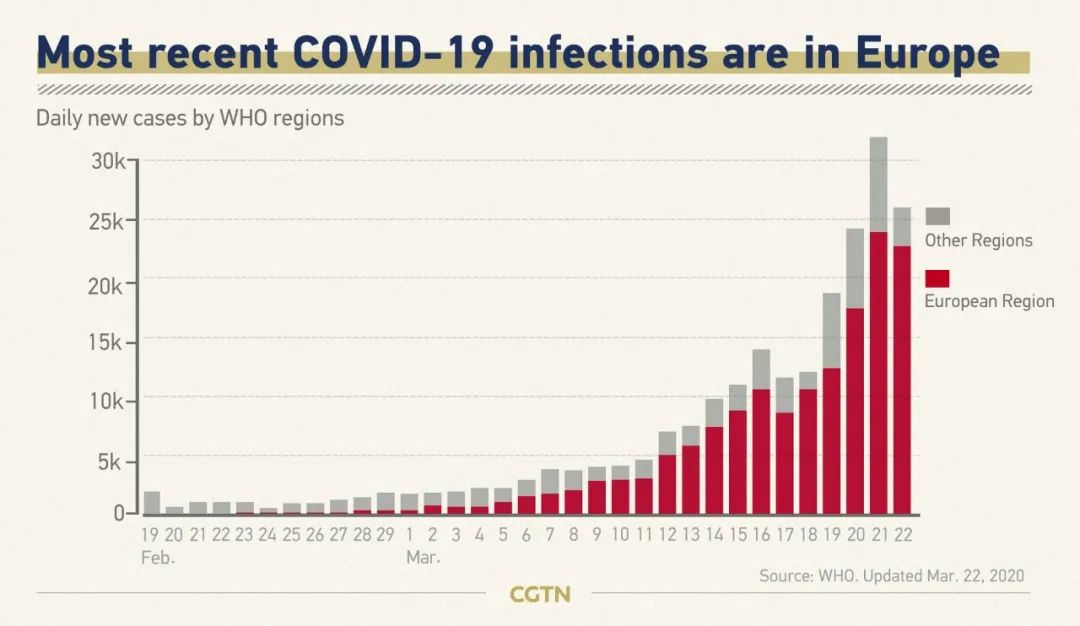欧洲疫情最新消息:欧洲疫情最严重的几个国家如何“战疫”?
CGTN2020-03-26 14:57CGTN

Restrictive measures launched
European governments took drastic measures to curb the outbreak by shutting down businesses and schools, banning public gatherings, closing borders and ordering citizens to stay in their homes.
In its latest efforts, the worst-hit Italy closed all non-essential businesses until April 3 after widening restrictions several times.
On February 22, the government quarantined 11 municipalities in northern Italy, then enlarged the lockdown area to the entire region of Lombardy and multiple other provinces.
A nationwide lockdown was finally imposed on March 10.
继意大利之后,法国和西班牙也采取了同样的隔离措施。
上周,法国总统埃马纽埃尔·马克龙下令实施严格的隔离措施,除必要的外出,公民应该待在家里。此外,马克龙补充说,军队将协助转运病人至医院。 任何违反这些隔离措施的人都将受到惩罚。 “我们处于战争状态。”马克龙在电视讲话中说,西班牙总理佩德罗·桑切斯也表达了同样的观点。 3月22日,桑切斯表示,政府正在考虑将目前的紧急隔离状态延长至4月11日。 自3月16日以来,西班牙一直处于封锁状态。此前,首相证实国家正初步处于“紧急状态”,并对公民外出实施了严格限制。 尽管德国没有在全国范围内实施封锁,但非刚需企业也已经关闭。 3月22日,默克尔在记者会上说,德国将禁止两人以上的公众集会。
France and Spain also followed Italy's moves to quarantine the entire country.
Last week, French President Emmanuel Macron ordered stringent restrictions to make people stay at home and only go out for essential trips, adding the army would be drafted in to help move the sick to hospitals.
Anyone flouting the restrictions would be punished.
"We are at war," Macron said in a televised address. The mood was echoed by Spanish Prime Minister Pedro Sanchez.
Sanchez said on Sunday that his government was seeking to extend the current state of emergency until April 11.
Spain was put under lockdown since March 16 after the PM confirmed an initial "State of Alarm", placing severe restrictions on citizens from going outside.
Although Germany stopped short of imposing nationwide lockdowns, non-essential businesses had already been closed across the country.
Merkel told a press conference Sunday that Germany will prohibit public gatherings of more than two people.
相关推荐
- 美国最新疫情消息:美国新冠肺炎累计确诊超100万
- 双语:Pokemon Go怕玩家不隔离,要变成Pokemon Stay
- JK罗琳秘密买回哈利波特的诞生地
- 新东方APP下载入口
- 新东方APP下载入口
- 新东方APP下载入口



